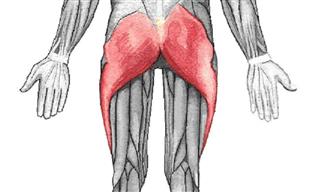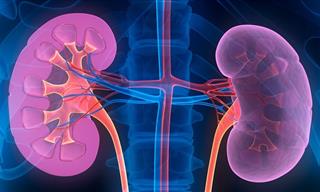Maintaining a healthy bladder is crucial for overall well-being, as it plays an important role in our urinary system. When it doesn't function properly, it can cause discomfort and health problems. Fortunately, there are several foods that can promote bladder health by providing essential nutrients and preventing common issues such as urinary tract infections (UTIs) and incontinence. Continue reading to find out about nine of the best foods that can help maintain bladder health.
1. Seafood

Swordfish, tuna, salmon, and sardines are rich in lean protein and packed with vitamin D, which is a valuable nutrient for your bladder health. According to research, those with inadequate vitamin D levels are at a higher risk of developing a variety of conditions, including overactive bladder, urinary tract infections, and bladder cancer. Additionally, protein plays a crucial role in your body's self-repairing processes. You can also obtain lean protein and vitamin D from sources like chicken breast, turkey, and lamb, as well as lean cuts of beef and pork, which are best prepared by baking, steaming, or broiling to minimize bladder irritation.
2. Pears

When it comes to promoting bladder health, pears are among the fruits recommended for their beneficial effects. Pears are a good source of fiber and malic acid, both of which are beneficial to preventing urinary tract stones. Their vitamin C concentration has been linked to a calmer bladder, which reduces those desperate "gotta go" situations. Several other fruits like bananas, grapes, apples, honeydew, watermelon, and coconut are also bladder-friendly choices. However, citrus fruits such as oranges and grapefruit should be consumed cautiously due to their potential to irritate the bladder.
3. Oats

Oats, as a whole grain, are an excellent source of dietary fiber. This fiber plays a crucial role in maintaining bladder health by preventing constipation, which can exert undue pressure on your bladder and disrupt its normal function. If you're dealing with bladder conditions such as cystitis or other severe issues, including oats in your diet may also relieve bladder discomfort. Consider adding a serving of oats or enjoying an oatmeal cookie to aid in managing your bladder concerns. Additionally, there are other whole grains that can be beneficial for your bladder, including brown rice, millet, barley, and whole-grain bread.
4. Eggs

When it comes to foods that are gentle on the bladder, eggs are among the best choices. They provide a wealth of minerals and beneficial components that contribute to the health of your bladder. These nutritional powerhouses are also rich in vitamin D and are an excellent source of lean protein. If cholesterol intake is a concern, you can simply discard the yolks and stick to consuming the egg whites.
It's worth noting here that some studies reveal a possible link between the consumption of fried eggs and an elevated risk of bladder cancer. To reduce this risk, those who eat eggs on a daily basis may choose to experiment with healthier cooking methods such as boiling, poaching, or scrambling.
5. Garlic

Research suggests that garlic can play a key role in preventing bladder cancer by inhibiting the development and proliferation of cancer cells. Furthermore, garlic extract has been proven effective in combating drug-resistant urinary tract infections. If you wish to gain these benefits, consider adding garlic to your diet, whether you choose fresh garlic cloves or dried, minced garlic. However, bear in mind that garlic supplements can sometimes interact adversely with other medications, so seeking advice from your healthcare provider is a prudent step.
6. Yogurt

When you include probiotic-enriched yogurt in your diet, you support the development of gut bacteria that aid in breaking down food more efficiently, ultimately improving your digestive system's effectiveness. Additionally, it's worth mentioning that yogurt's probiotics can bolster your urinary system's ability to combat urinary tract infections.
7. Squash

There is evidence that winter squash contains beta-carotene and other carotenoids that reduce the risk of bladder cancer. Carotenoids manifest as red, orange, and yellow pigments in vegetables. Varieties such as acorns, spaghetti, and butternut squash are excellent choices. By preparing squash with oil, carotenoid absorption is enhanced, as fat enhances their incorporation into the body. Other vegetables teeming with carotenoids encompass pumpkins, carrots, spinach, kale, sweet potatoes, broccoli, and bell peppers.
8. Nuts

Nuts can be a valuable addition to your bladder-friendly diet due to their high levels of protein, fiber, and essential vitamins and minerals. It is important, however, to distinguish between nut types, with almonds, cashews, peanuts, pine nuts, and sunflower seeds being the best choices to maintain a healthy bladder. Keep in mind that certain nuts might irritate your bladder, and it's best to avoid highly salted kinds because excessive salt consumption can contribute to increased urination frequency and urgency, even when not necessary.
9. Berries

Strawberries, raspberries, blueberries, cranberries, and a variety of other berries are valuable sources of flavonols and vitamin C, noted for their ability to combat bacteria. These berries also have a high water content, which helps cleanse the bladder.
Cranberries, whether in juice or supplement form, were once promoted as a prophylactic measure for UTIs. In recent years, however, a number of studies have raised doubt regarding their effectiveness, with only mixed evidence supporting their use. The American Urological Association notes that while the evidence for cranberry benefits is limited, the risk associated with their consumption is minimal, allowing doctors to suggest them to patients with recurring UTIs.
Sources: Cxbladder, Byram Healthcare, Everyday Health, Healthline
 Go to BabaMail
Go to BabaMail

































